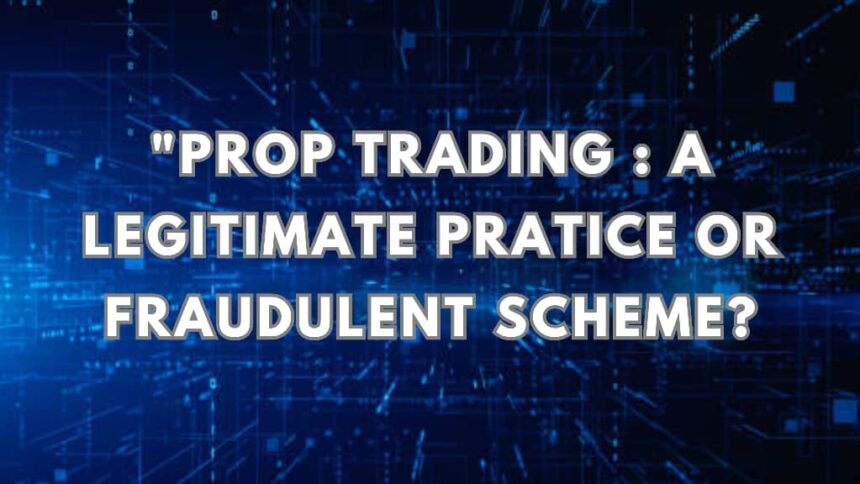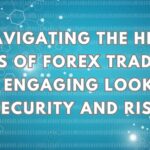Proprietary trading, commonly known as prop trading, often proves controversial among market participants. Enveloped with misconceptions and unfounded allegations, prop trading can, at times, be seen in a negative light. However, asserting that prop trading is simply a form of fraud would be grossly inaccurate.
Delving into Prop Trading
In prop trading, financial institutions and banks trade stocks, derivatives, forex, commodities, and other financial instruments with their own money, contrary to using clients’ funds. The primary aim is to realize direct financial gains rather than earning commission through client trades.
Consequently, the profits or losses accrued from these trades directly impact the financial status of the institution involved. As such, prop trading demands a high level of risk management, superior knowledge of the markets, and skilled decision-making.
Controversy Surrounding Prop Trading
The controversy surrounding prop trading primarily arises from the inherent risks involved. During the 2007-2008 financial crisis, prop trading reached a vortex point due to losses suffered by several banks that excessively indulged in it. Since then, it became widely criticized and even led to restrictions, such as the Volcker Rule in the United States, which limited banks’ ability to engage in prop trading.
Moreover, allegations of fraud often arise when prop trading is confused with “front-running,” which is indeed a fraudulent practice. Front running involves a broker executing orders on a security for its own account while taking advantage of advance knowledge of pending orders from its customers. While front-running is deemed illegal and unethical, it is not an intrinsic aspect of prop trading.
Prop Trading: Not Synonymous with Fraud
Although prop trading carries substantial risks, equating it to fraud overlooks its legitimate and crucial role in financial markets. Prop traders contribute to significant market liquidity, create securities market depth, and help in accurate security pricing. This form of trading is legal and regulated in most financial jurisdictions worldwide, subject to certain restrictions to mitigate risk.
It’s essential to understand the clear distinction between fraudulent trading practices and prop trading. While there may be instances where unscrupulous actors misuse the system, these exceptions should not tarnish the entire approach.
Conclusion
Like any financial practice, prop trading comes with its own set of risks and rewards. It requires a sound understanding of market dynamics and stringent risk management policies. Ensuring ethical boundaries are respected is crucial in aligning this practice with the overall financial market’s wellbeing. To categorize prop trading wholesale as fraudulent would be misleading and unfair. Therefore, it’s vital for both market professionals and observers to differentiate between the instrumentality of prop trading and potential misuses or abuses that may occur within its framework.




